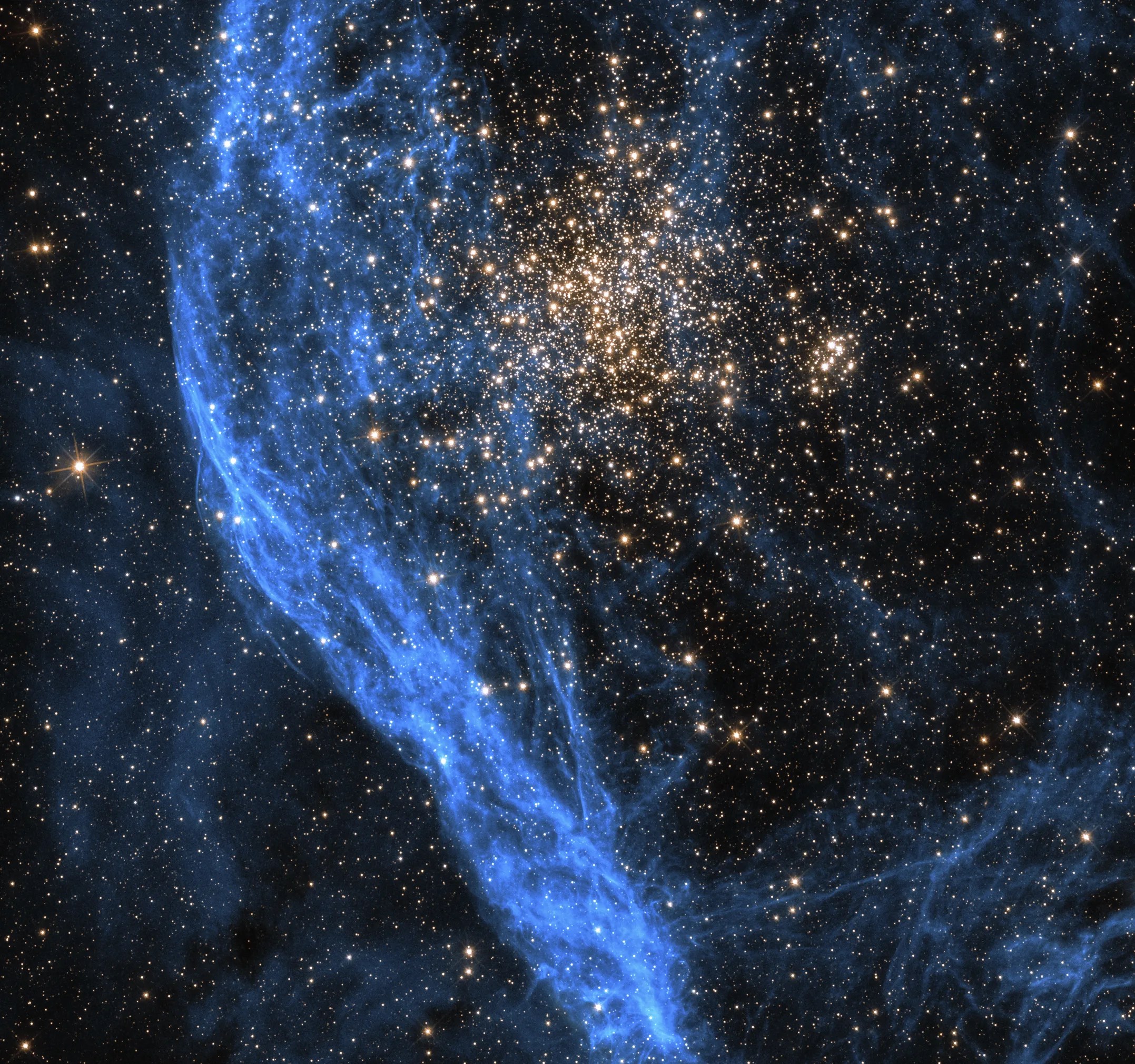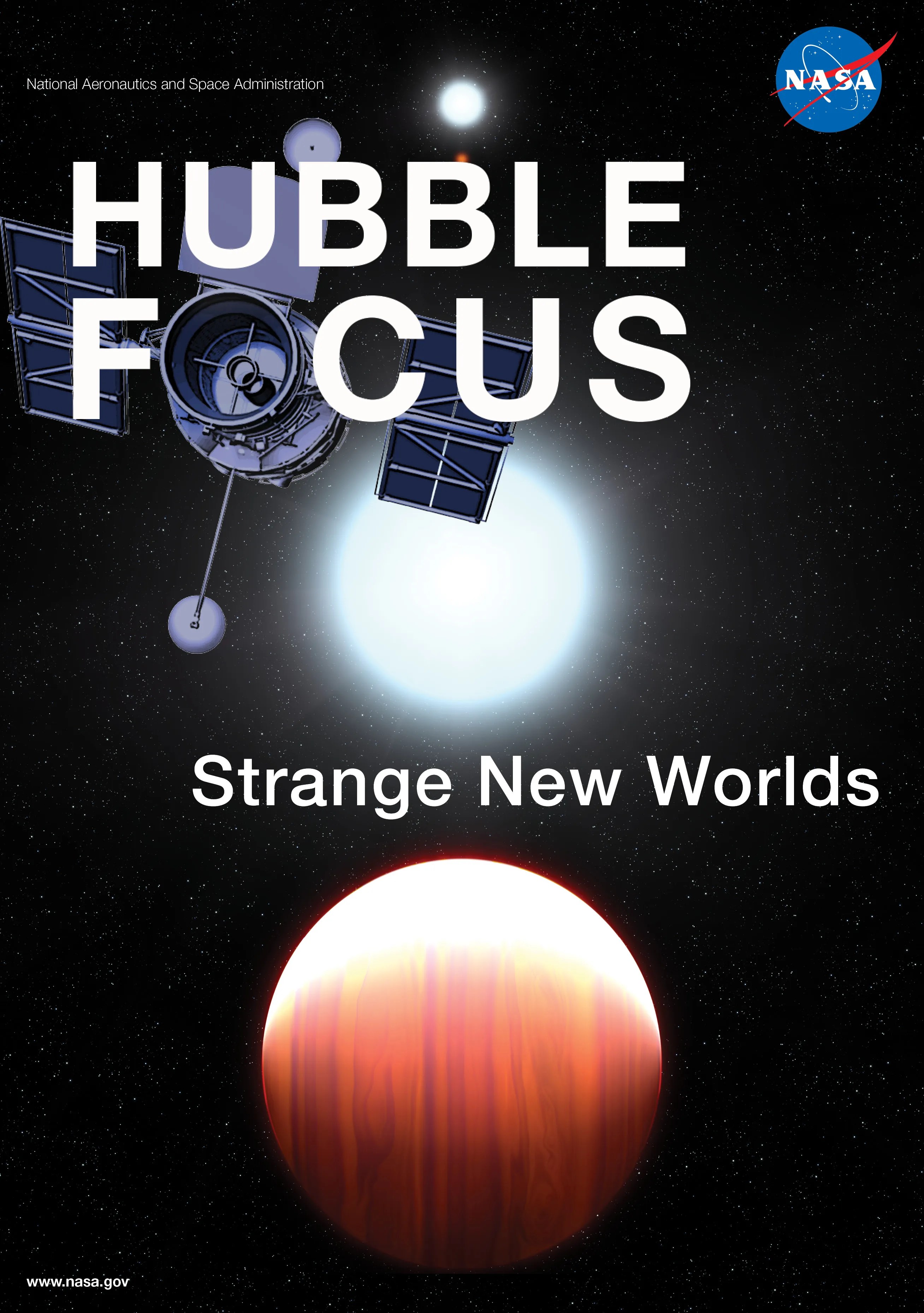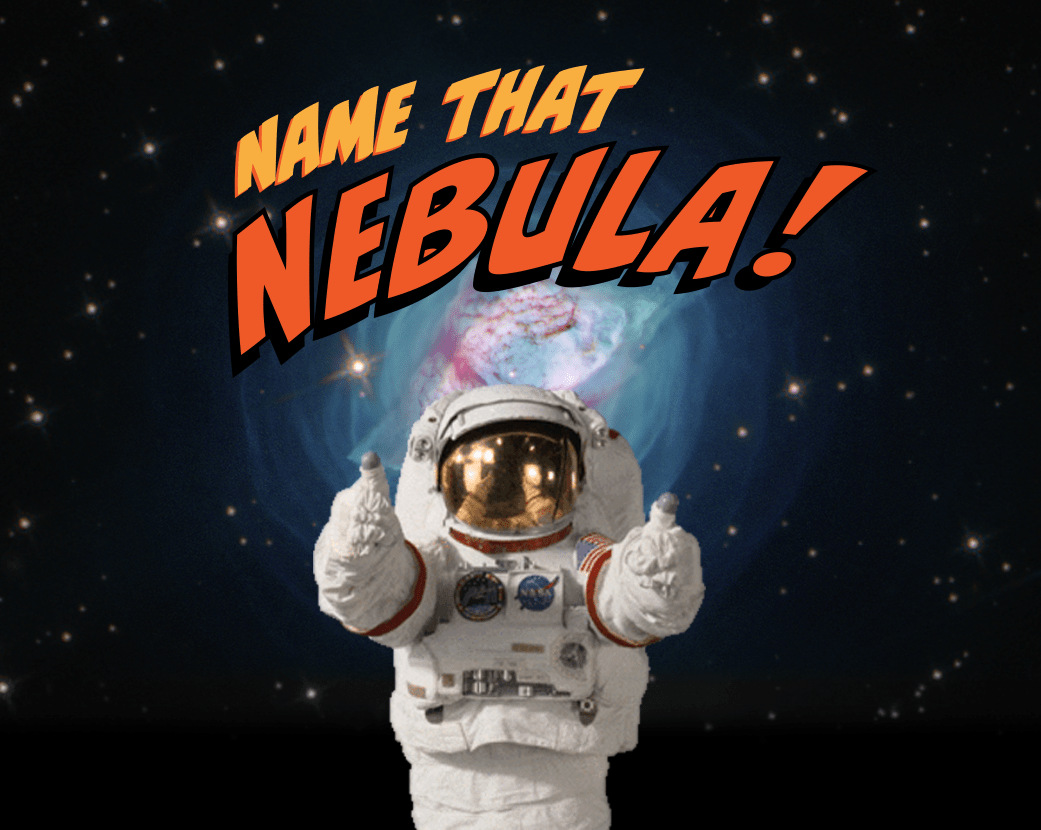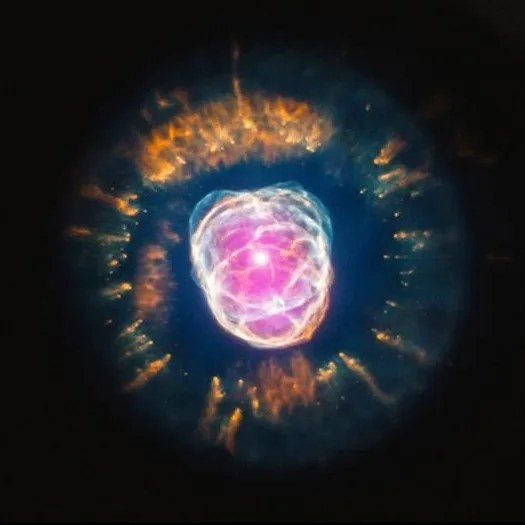Messier 51
Also known as the Whirlpool Galaxy, Messier 51's spiral arms are star-forming factories.
Distance
31 million light-years
Apparent Magnitude
8.4
constellation
Canes Venatici
object type
Spiral Galaxy
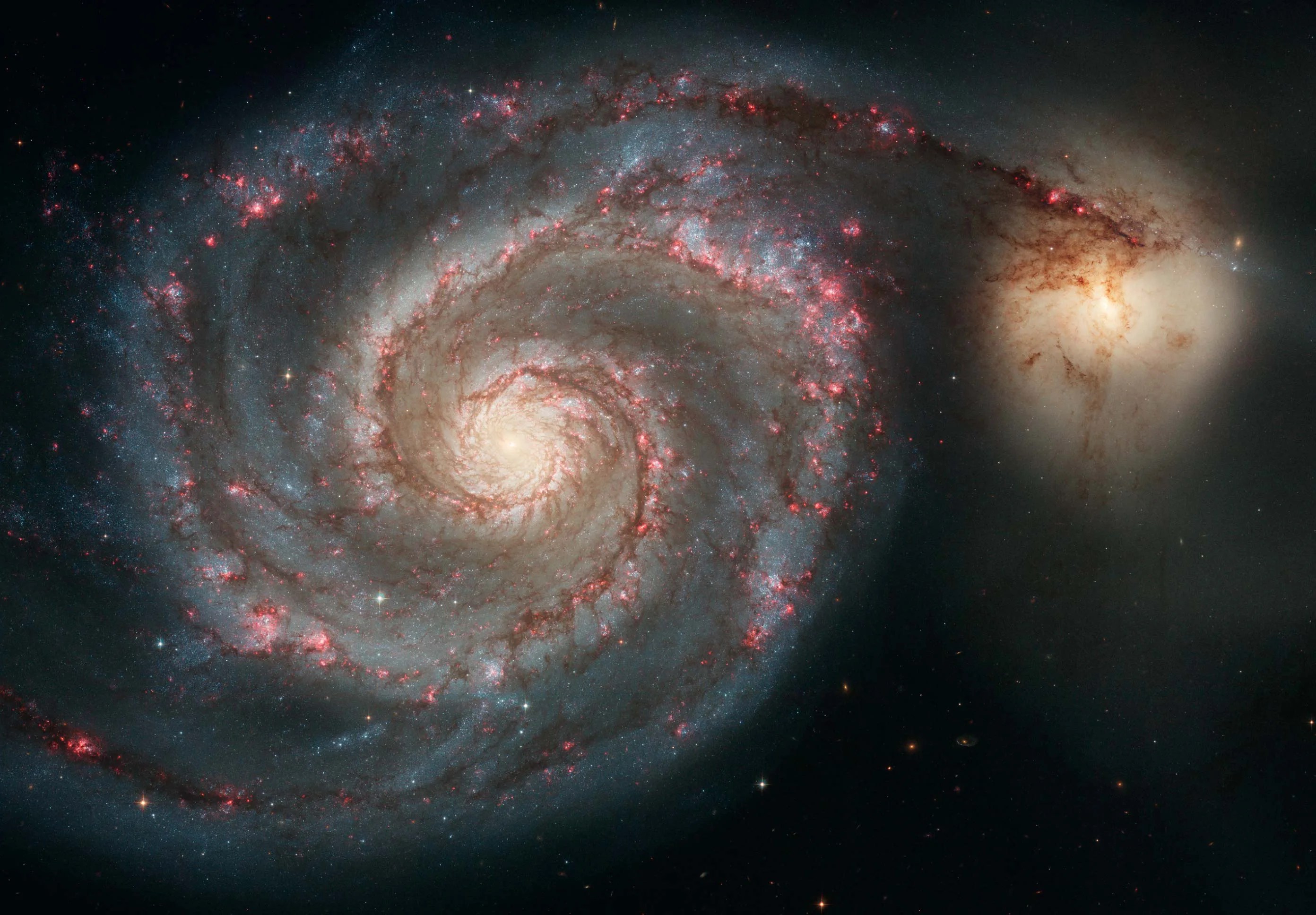
The graceful, winding arms of the majestic spiral galaxy M51 appear like a grand spiral staircase sweeping through space. They are actually long lanes of stars and gas laced with dust. Such striking arms are a hallmark of so-called grand-design spiral galaxies. In M51, also known as the Whirlpool galaxy, these arms serve an important purpose: they are star-formation factories, compressing hydrogen gas and creating clusters of new stars.
Some astronomers think that the Whirlpool’s arms are particularly prominent because of the effects of a close encounter with NGC 5195, the small, yellowish galaxy at the outermost tip of one of the arms. The compact galaxy appears to be tugging on the arm, the tidal forces from which trigger new star formation. Hubble’s clear view shows that NGC 5195 is passing behind M51. The small galaxy has been gliding past the Whirlpool for hundreds of millions of years.
In Hubble’s captivating image of M51, the red represents infrared light as well as hydrogen within giant star-forming regions. The blue color can be attributed to hot, young stars while the yellow color is from older stars.
Discovered by Charles Messier in 1773, M51 is located 31 million light-years from Earth in the constellation Canes Venatici. It has an apparent magnitude of 8.4 and can be spotted with a small telescope most easily during May. The Whirlpool galaxy’s beautiful face-on view and closeness to Earth allow astronomers to study a classic spiral galaxy’s structure and star-forming processes.
For more information about Hubble’s observations of M51, see:
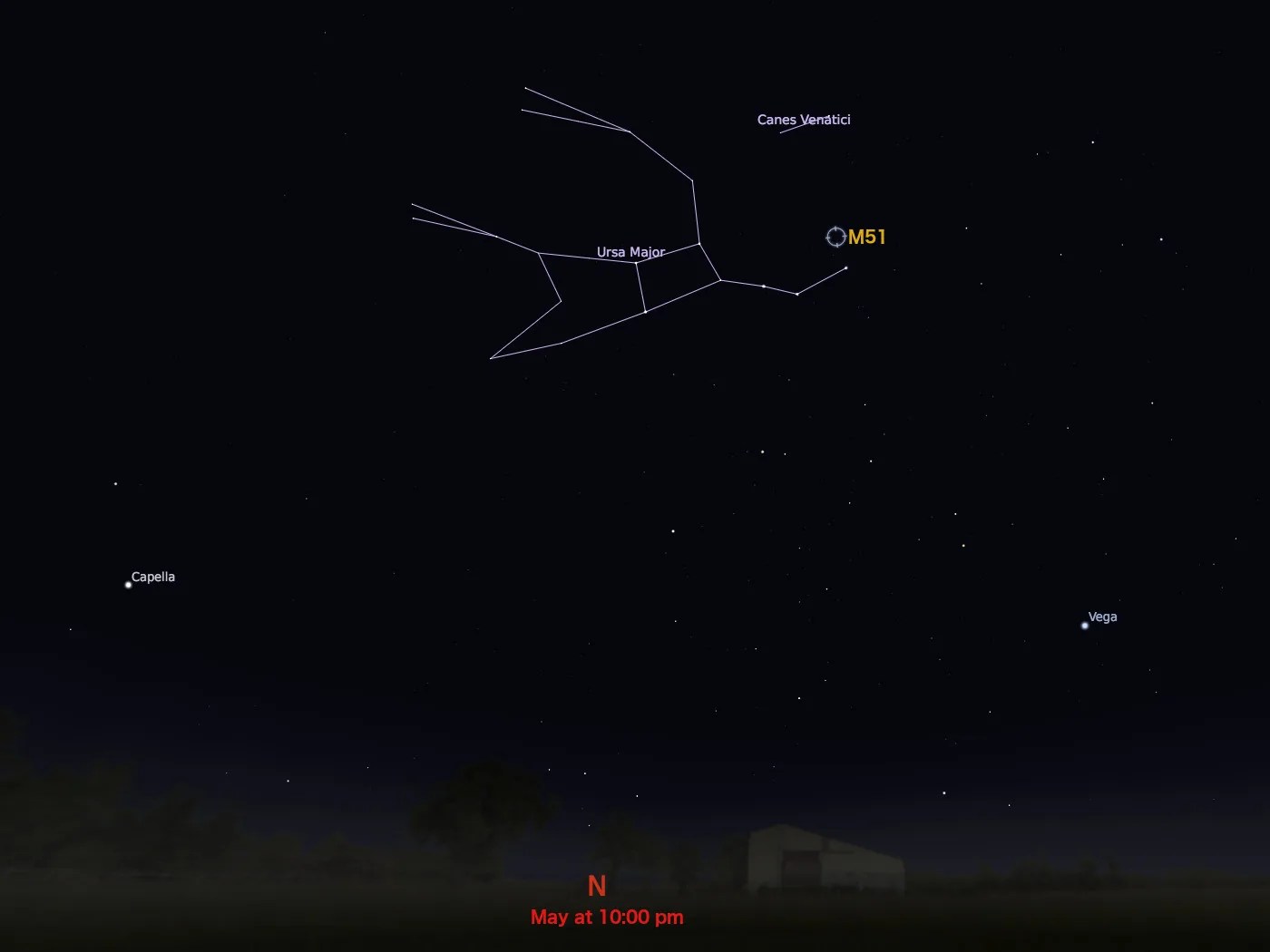
Explore Hubble's Messier Catalog
The following pages contain some of Hubble’s best images of Messier objects.
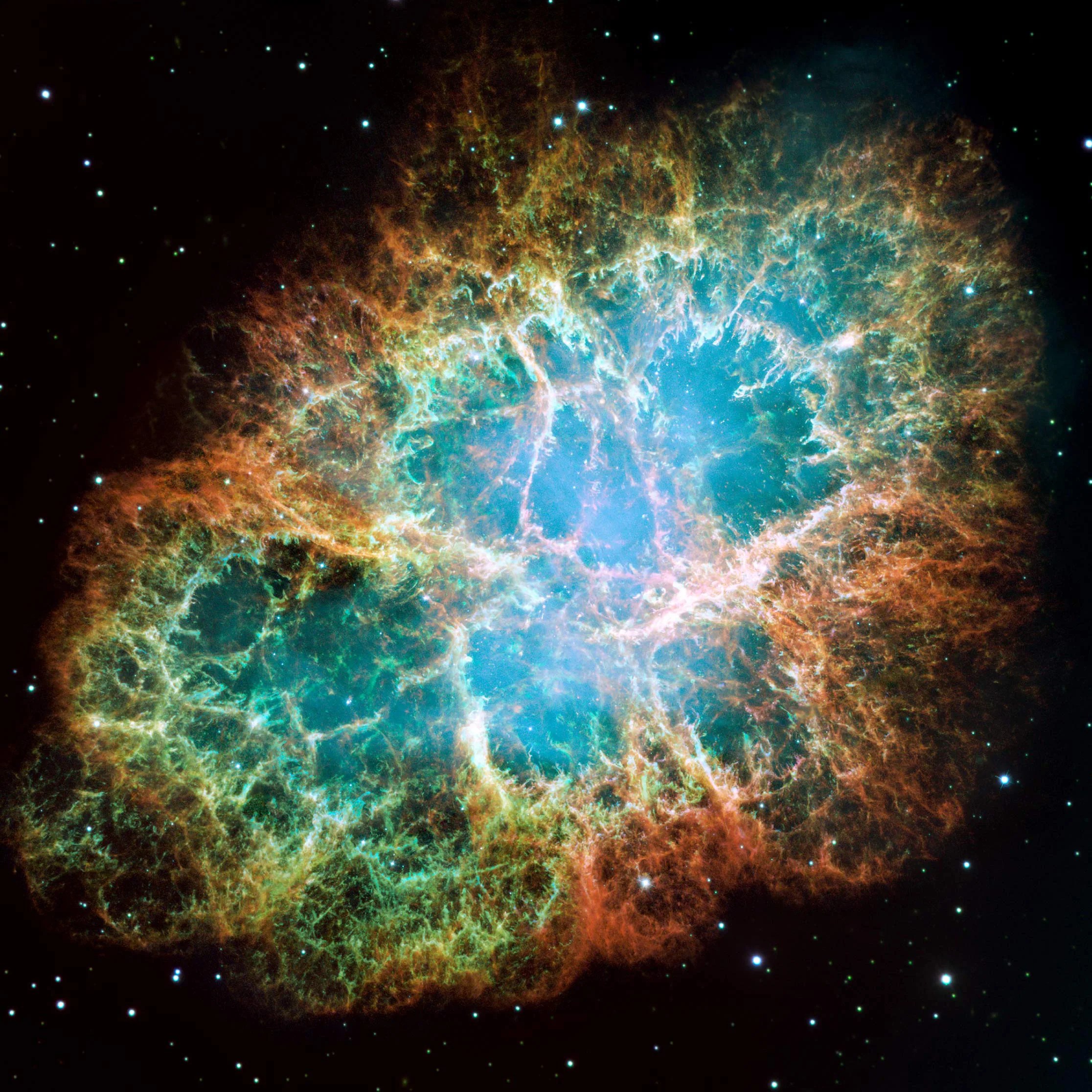
Messier 1 (The Crab Nebula)
Better known as the Crab Nebula, Charles Messier originally mistook Messier 1 for Halley’s Comet, which inspired him to create…
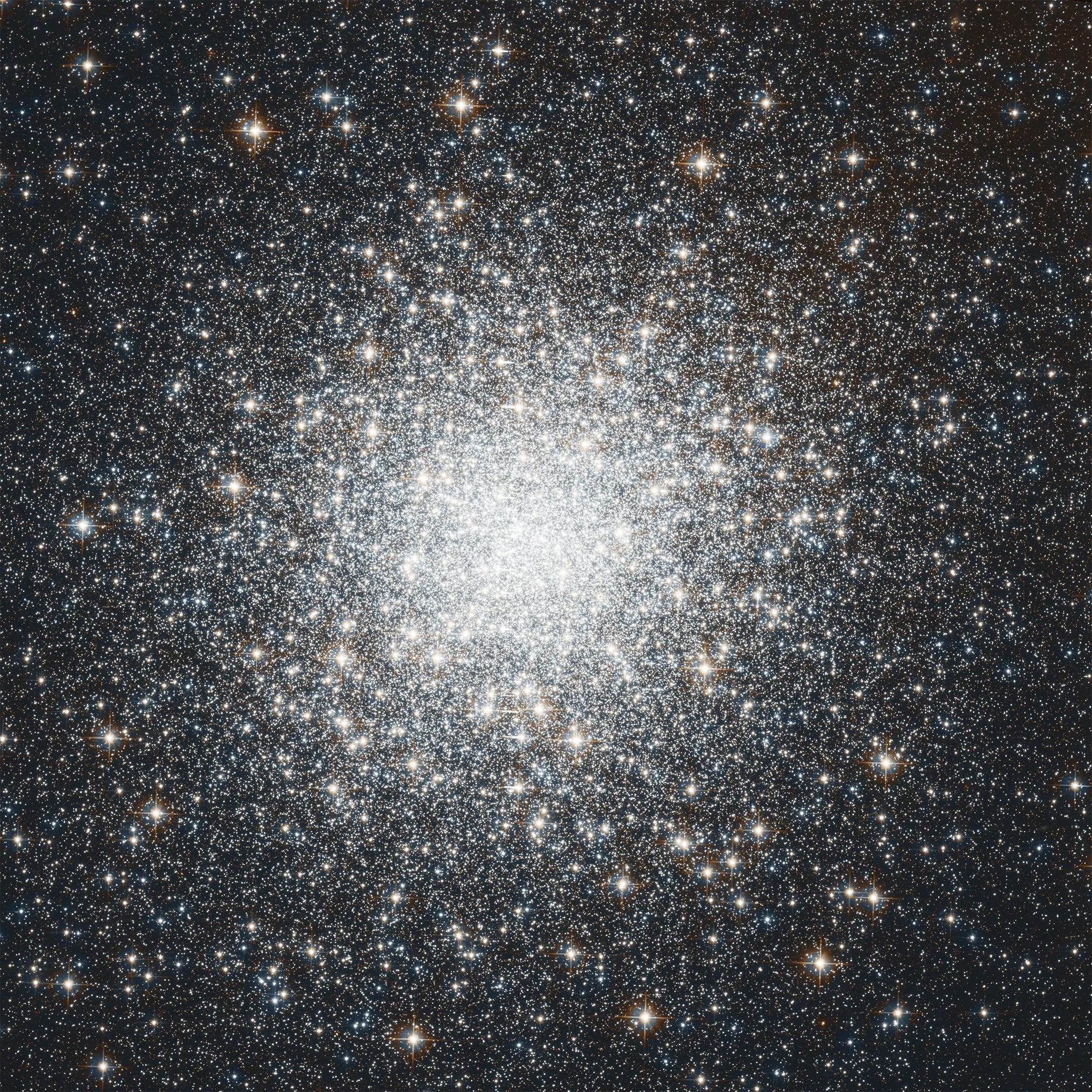
Messier 2
Hubble's image of Messier 2 is comprised of visible and infrared wavelengths of light.
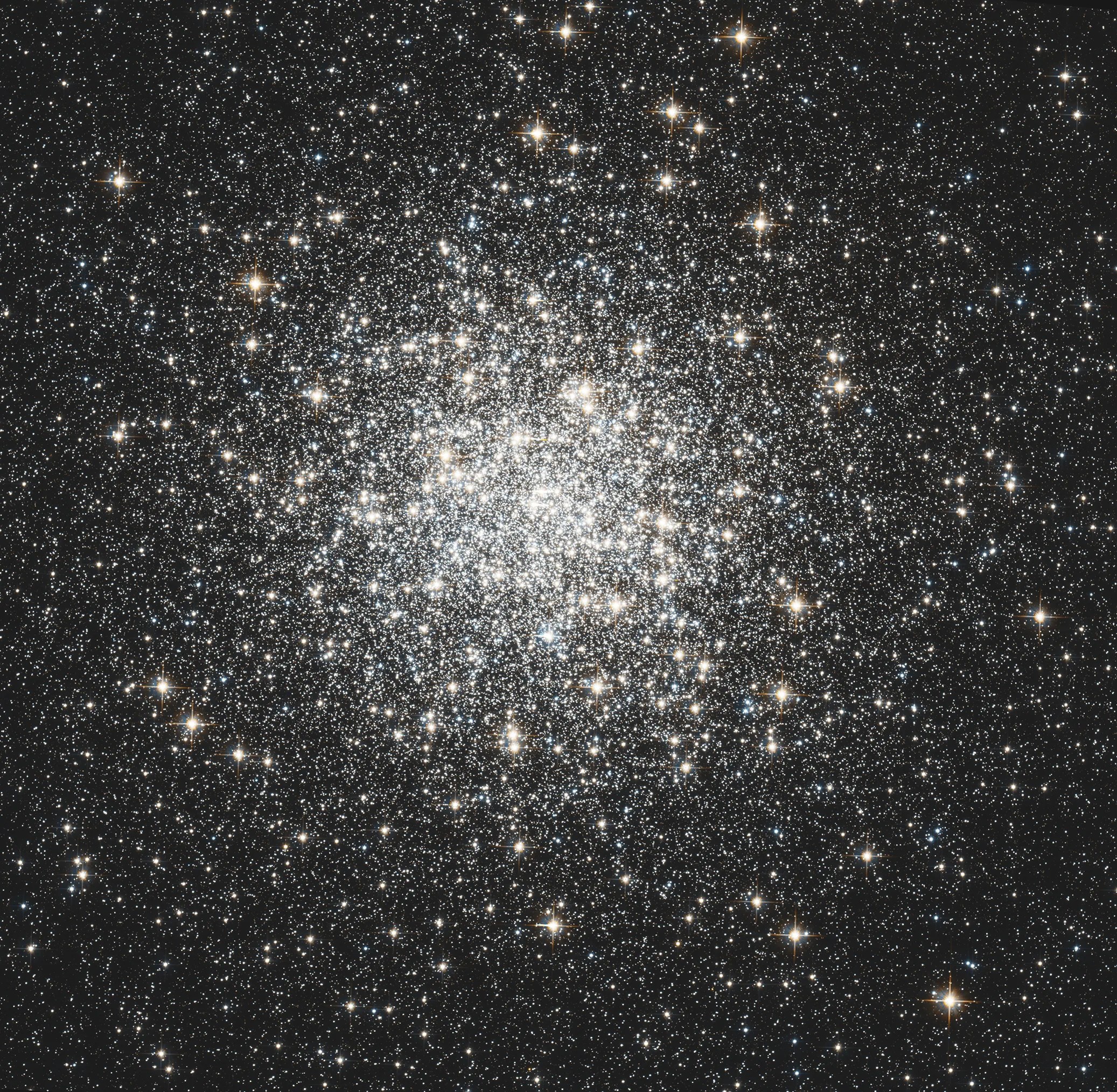
Messier 3
Messier 3 holds more than 500,000 stars.

